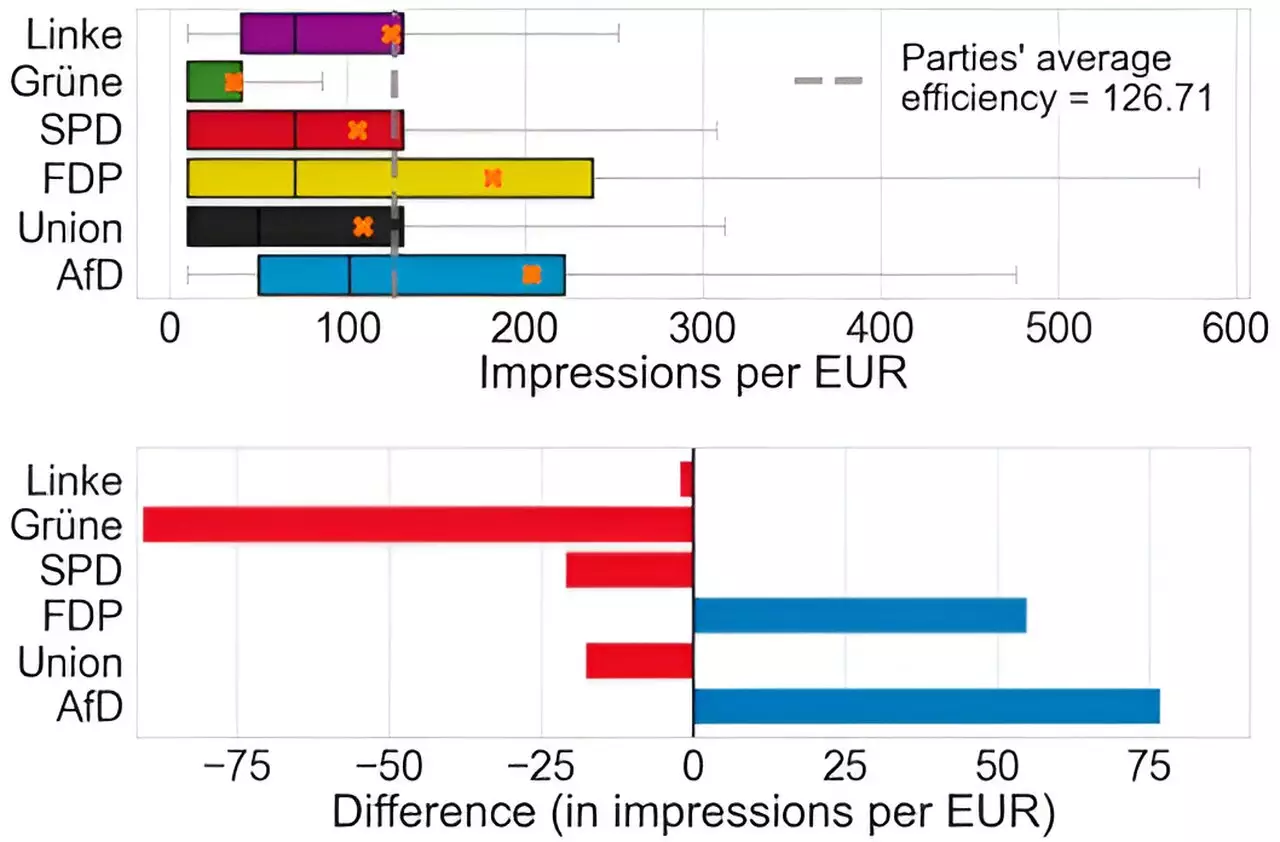Social media platforms have become powerful tools for political parties to reach their target audiences, especially during elections. However, a recent study published in the journal PNAS Nexus sheds light on how social media algorithms can influence the distribution and effectiveness of political ads.
The research conducted by the Politecnico di Milano, LMU—Ludwig Maximilians Universität of Munich, and the CENTAI institute of Turin focused on analyzing over 80,000 political ads on Facebook and Instagram before the 2021 German federal elections. These ads, placed by various political parties, generated over 1.1 billion impressions during a critical election period.
One of the key findings of the study was the significant discrepancies in the effectiveness of political ads across different parties, despite similar investment budgets. The far-right AfD proved to be the most efficient in reaching its target audience, with ads almost six times more effective than its competitors. On the other hand, the Greens were identified as the least cost-effective party in terms of advertising impact.
The study also highlighted the algorithmic bias in ad distribution, with most parties reaching a younger audience than expected, except for the far-right parties. This discrepancy in reaching the targeted audience raises concerns about the impact of social media algorithms on political participation and the democratic process.
Call for Transparency and Accountability
Researcher Francesco Pierri from the Politecnico di Milano emphasized the need for greater transparency from social media platforms regarding political advertising. The lack of transparency and accountability in ad distribution algorithms can create biases that distort political competition and limit the participation of certain groups.
The study’s findings underscore the importance of monitoring and regulating targeted political advertising on social media to ensure democratic integrity. Public pressure and regulatory efforts, such as the Digital Services Act in the EU, are pushing for increased transparency and oversight of political and social ads on digital platforms.
The impact of social media algorithms on political advertising is a critical issue that requires careful examination and regulation. The study’s findings reveal the potential for biases and inequalities in the distribution of political ads, emphasizing the need for greater transparency and accountability from social media platforms to safeguard democratic processes and ensure fair and uncompromised elections.


Leave a Reply